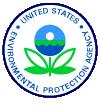All Hands on Deck: How Scientists and Communities Can Cooperate to Solve Urgent Environmental Challenges - and Why They Have To
Oral Presentation
Prepared by R. Pandya
American Geophysical Union, 2000 Florida Ave NW, Washington, DC, 20009, United States
Contact Information: rpandya@agu.org; 202-777-7514
ABSTRACT
We are in an era of unprecedented human impact on the planet. It shows up in a decline in biodiversity, net reduction in forest cover, ocean acidification, and a changing climate. Because of these environmental changes, along with rapid population growth, urbanization, and increasing energy and resource consumption, we are also in an era of intense vulnerability to natural hazards and long-term stresses. These global trends are intensely local and varied in their cause and effect, which means they are connected to uses of justice and equity. For example, communities that have contributed little to the global emissions of greenhouse gases are among the most vulnerable to climate change.
It is a critical time, but not a hopeless time. With all hands on deck, that is leadership from all sectors and all communities, we can address these challenges. This, of course, includes us: scientists, engineers, and experts in environmental monitoring. To be part of the solutions, we will need to embrace new ways of working. Instead of coming into communities as outsiders with important expertise, we need to embed ourselves in communities and work as partners.
I will share several examples of environmental scientists and communities working together to make an impact. I will describe how a neighborhood in Denver teamed with scientists to develop low-cost ways to help residents identify dangerous chemicals in their homes, how water managers in Kentucky used new meteorological data to improve local water guidance, and how public health workers in Africa have used humidity sensors to improve their management of meningitis. I will show how you, and your science, can be part of the solution in the places you live and work. Together, we can chart a course to a thriving future for our planet and its people, one community at a time.
Oral Presentation
Prepared by R. Pandya
American Geophysical Union, 2000 Florida Ave NW, Washington, DC, 20009, United States
Contact Information: rpandya@agu.org; 202-777-7514
ABSTRACT
We are in an era of unprecedented human impact on the planet. It shows up in a decline in biodiversity, net reduction in forest cover, ocean acidification, and a changing climate. Because of these environmental changes, along with rapid population growth, urbanization, and increasing energy and resource consumption, we are also in an era of intense vulnerability to natural hazards and long-term stresses. These global trends are intensely local and varied in their cause and effect, which means they are connected to uses of justice and equity. For example, communities that have contributed little to the global emissions of greenhouse gases are among the most vulnerable to climate change.
It is a critical time, but not a hopeless time. With all hands on deck, that is leadership from all sectors and all communities, we can address these challenges. This, of course, includes us: scientists, engineers, and experts in environmental monitoring. To be part of the solutions, we will need to embrace new ways of working. Instead of coming into communities as outsiders with important expertise, we need to embed ourselves in communities and work as partners.
I will share several examples of environmental scientists and communities working together to make an impact. I will describe how a neighborhood in Denver teamed with scientists to develop low-cost ways to help residents identify dangerous chemicals in their homes, how water managers in Kentucky used new meteorological data to improve local water guidance, and how public health workers in Africa have used humidity sensors to improve their management of meningitis. I will show how you, and your science, can be part of the solution in the places you live and work. Together, we can chart a course to a thriving future for our planet and its people, one community at a time.


